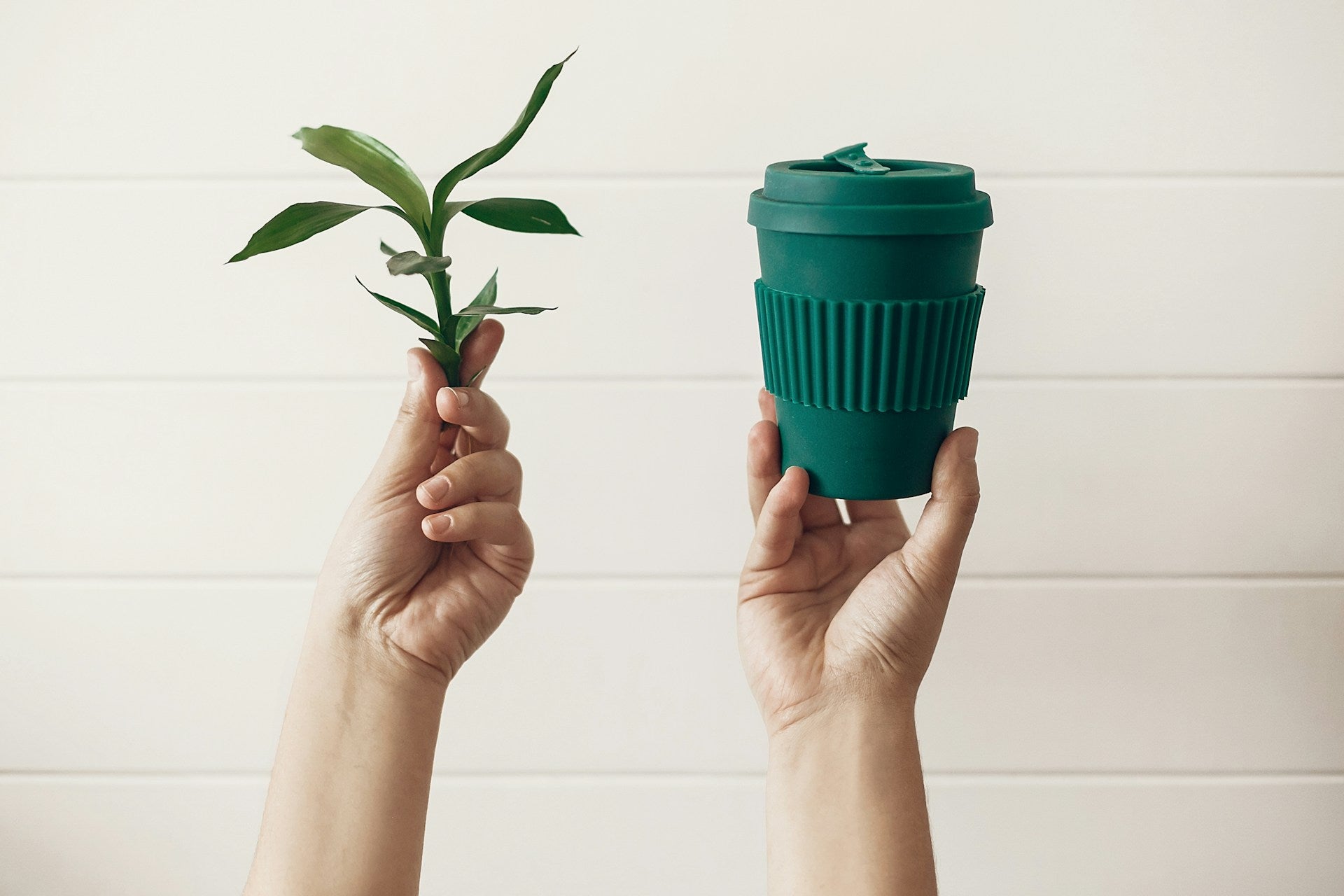

How Using Compostable Drinkware Supports Local Economies
Sustainability is more than just an environmental concern—it's a powerful driver of economic growth and community prosperity. When we make conscientious choices, such as opting for compostable drinkware, we unlock a world of benefits that extend far beyond the immediate environmental impact.
By understanding the far-reaching advantages of these eco-friendly products, we can make informed decisions that reduce waste, strengthen local economies, and foster a more sustainable future for all.
Compostable drinkware, made from renewable materials like Polyhydroxyalkanoates (PHA) and Polylactic Acid (PLA), offers a sustainable alternative to traditional petroleum-based plastics. These materials break down naturally, turning into nutrient-rich compost instead of lingering in landfills for centuries.
But the advantages of compostable drinkware go far beyond its environmental impact, as it also plays a crucial role in supporting local farmers, manufacturers, and businesses, creating a ripple effect of economic growth and community resilience.
The choice to embrace compostable drinkware is a powerful one, as it represents a tangible step towards a more sustainable future. Each time we select these eco-friendly options, we're reducing waste and investing in our local communities' economic well-being.
Join us in this journey of "Consciously Convenient" living, where our everyday choices can make a lasting difference.
Understanding Compostable Drinkware
Compostable drinkware is made from materials that break down naturally over time, unlike traditional plastics. Traditional plastics are derived from petroleum, and they can take hundreds of years to decompose. In contrast, compostable drinkware is made from renewable resources that decompose quickly under the right conditions, turning into useful compost instead of harmful waste.
The materials used in making compostable drinkware include Polyhydroxyalkanoates (PHA) and Polylactic Acid (PLA). PHA is a bioplastic produced by bacteria that feed on plant sugars. This natural process results in a material that can be molded into various shapes, including drinkware, and it breaks down completely when composted. PLA, derived from fermented plant starches like corn or sugarcane, is another common material. It offers durability similar to traditional plastics but decomposes much faster.
Understanding the differences between compostable and traditional drinkware helps us make smarter choices. Compostable options not only reduce the waste that ends up in landfills but also provide a more sustainable alternative to petroleum-based products.
Economic Benefits for Local Producers
The production of compostable drinkware brings significant economic benefits to local farmers and manufacturers. These materials are often sourced from agricultural products like corn and sugarcane, creating a new market for farmers. By purchasing these raw materials, we support local agriculture and provide an additional revenue stream for farmers.
Local manufacturers also benefit. Producing compostable drinkware requires specific skills and machinery, leading to job creation and skill development within the community. These jobs are often more sustainable and long-term compared to those in industries dependent on fossil fuels. As the demand for eco-friendly products grows, so does the need for skilled workers in the field of sustainable manufacturing.
Highlighting job creation and economic growth in local communities is essential. When we choose compostable drinkware, we support the entire supply chain—from the farmer growing the crops to the manufacturer producing the final product. This creates a ripple effect that promotes economic stability and growth in our communities. "Consciously Convenient" perfectly captures the added benefit of making these thoughtful choices.
Reducing Transportation Footprint
Local production of compostable drinkware significantly reduces transportation costs and environmental impact. When drinkware is produced locally, it minimizes the distance the products need to travel from the factory to the consumer. This shorter distance means fewer fuel emissions from transportation vehicles, leading to a smaller carbon footprint.
A shorter supply chain also provides numerous benefits for local economies. Local businesses are more agile and can respond quickly to demand changes, reducing the need for long-term storage and associated costs. By sourcing materials and products locally, we support local businesses and decrease reliance on international shipping, which often involves complex logistics and higher environmental costs.
Local production also means that products can be delivered fresher and faster. This efficiency benefits consumers and supports local businesses' sustainability goals by reducing the overall energy expenditure in moving goods. Keeping the production cycle within a community strengthens its economic health and ties, making it a win-win for the environment and the economy.
Supporting Sustainable Local Businesses
Supporting sustainable local businesses through the purchase of compostable drinkware has ripple effects throughout the community. When local businesses choose to sell eco-friendly products, they promote a culture of sustainability that can inspire other businesses to follow suit. This collective effort fosters a community-wide commitment to the environment.
Examples of local businesses benefiting from selling compostable drinkware include cafes, restaurants, and specialty shops. By offering eco-friendly options, these businesses attract conscientious customers who prioritize sustainability. This boosts sales and helps establish a brand image aligned with responsible consumerism.
Supporting these businesses encourages more sustainable practices within the community. As demand for compostable drinkware grows, more local producers and suppliers invest in eco-friendly technologies and sustainable practices. This investment leads to innovation and broader adoption of green initiatives, benefiting the entire community.
Eco-Friendly Choices, Community Rewards: The Local Benefits of Compostable Drinkware
Understanding the advantages of compostable drinkware goes beyond its immediate environmental impact. By choosing these eco-friendly products, we support a supply chain that benefits local farmers, manufacturers, and businesses.
This choice fosters economic growth, job creation, and sustainable practices within our communities. Plus, local production reduces transportation costs and emissions, further minimizing our carbon footprint.
The use of compostable drinkware serves as a tangible step towards sustainability that is easy to incorporate into our daily lives. Each time we select these eco-friendly options, we contribute to a healthier, more sustainable planet for future generations.
If you’re ready to make a conscious choice that benefits both the environment and local economies, explore our range of compostable drinkware. Switch to Anu Drinkware today and experience the difference that sustainability can make.



